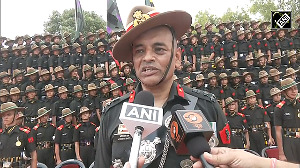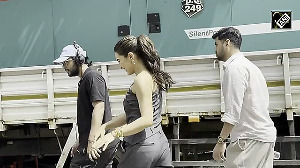With child labour all set to be banned from Tuesday, social activists fear that the law, though well-meaning, could result in under-age workers getting pushed into hidden and more dangerous jobs.
While the government maintained that there were as many as 100,000 child workers in the capital, Bachpan Bachao Andolan, a non-government organisation working for the rights of children, claimed there were over 400,000 under-age workers.
With most of the child workers in the city coming from Bihar and Jharkhand, the Delhi government has prepared an action plan with the respective states for their rehabilitation.
"An action plan has been drawn up, which involves the various concerned agencies such as the labour and social welfare departments, police and Railways as well as NGOs, RWAs and industrial and market associations," a top Delhi government official told PTI.
He said the RWAs and market associations will have an important role to play as the fresh notification on banning child labour also prohibits employment of children as domestic workers or servants in 'dhabas' and restaurants.
The official said the rescued children will be escorted by police back to their home states, where the local authority and NGOs will be in charge of their rehabilitation.
Under a central scheme for rehabilitating child workers, all of them will get a monthly stipend of Rs 100, he said.
Looking at the flip side of the law, social activists fear the employers may dump the children into back-end jobs, such as working in godowns.
"In an effort to avert legal action, an employer may hide the child and engage him or her in more hazardous jobs," said Surina Rajan of International Labour Organisation.
"The children may not just be forced to do closed door jobs, they may also be subjected to abuse or even trafficked," said Rajan, who heads the Indus project for eradication of child labour.
Shaiju Varghese, coordinator of the Childline-1098, said it would be difficult for the implementing agencies to locate domestic workers and, hence, the role of the civil society becomes important. "The police or any other agency would fail in their purpose if the society is not sensitised," he said.
In view of the difficulties involved in locating and rescuing child domestic workers, Delhi government has planned measures such as asking RWAs to display at the main entry points into localities placards declaring that no children are employed there.
"Similar hoardings can be displayed by the market associations also," the Delhi government official said.
With the aim to create awareness, jingles prepared by ILO are being played on FM radio and TV channels have also agreed to show anti-child labour messages, he said.





